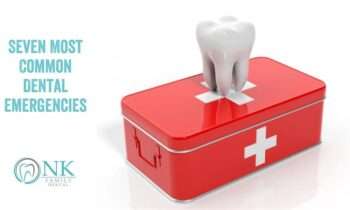Seven Most Common Dental Emergencies
If you practice good oral hygiene and visit your dentist twice a year for a dental examination and cleaning, you probably don’t expect anything out-of-the-ordinary to happen to your teeth or gums. But unfortunately, emergencies can still occur. We’ll look at the seven most common that lead to an unintended trip to your dentist for…










